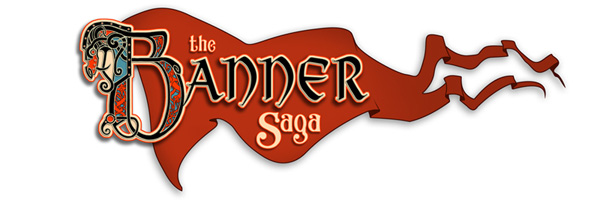But, sometimes I just feel like bitching and it isn't really of academic integrity, but still deserves recognition I believe. That is what this blog is going to be comprised of mostly now.
I don't follow G4 very closely (and by that I mean not at all) partially because I don't think they think very hard when they'e trying to think and partially because I don't like them pandering to me by paying off really hot models to talk about subjects that they know nothing about (seriously...if ESPN can find attractive girls who are knowledgable about football, we should be able to do it with gaming).
That being said, Kotaku (the lesser of the two evils in this situation) linked me back to an old G4 article on Alan Wake and Product Placement. Now bear in mind that this article is from 2010, but it still bothered me when I read this line: "The argument about whether games are Art is ridiculous in the face of this kind of evidence -- it's obvious games are commerce."
Hold on...first of all, isn't this the pot calling the kettle black? Or does that not count because you aren't saying it through the mouthpiece of Layla Kayleigh?
 |
| What?! This is just her comfortable gaming attire! Just wait until she's playing CoD on Hardcore Mode... |
Second of all, stop stating such fallacies as fact. You can't just create Art and Commerce as diametrically opposed sources of creation. Quite the opposite, they often go hand in hand.
Everyone from Michelangelo to Shakespeare had wealthy patrons to support their art. Many of Shakespeare's "Historical" plays were created thanks to the patronage of wealthy lords or even, at times, the ruling families wishing to impress a certain notion to feign historical legitimacy (read Richard III).
Charles Dickens was paid per word and it's still a practice of publishers for gauging payment to this day. So I don't know where this bohemian ideal sprung from (well...actually I do) but we seem to champion art as a form of poverty when there is no inherent connection between the two.
Go watch Exit Through the Gift Shop for more meditation on this. (Banksy makes the clear distinction of art funded by and generating commercial interest and art created for commercial exploitation)
 |
| The master of exploitation |
The point is that the game has to give some control over for funding. Even if it's funded by Kickstarter, some of that artistic control is given over to the funders. Look at The Banner Saga! That game is going to be an artistic masterpiece, but people paid $2,500 to be sketched as a God in that game.
By these fuckers logic, that game is no longer worth of any artistic merit because these patrons influenced the design of the game. Which is a ridiculous claim! Everything has to get paid for somehow. These guys generated nearly a MILLION dollars from patrons.
 |
| Psh...sellouts. |
The problem doesn't lie with the game developers. The problem lies with the source of patronage and their lack of understanding of the art form. If someone had told Shakespeare he would only pay him if he inserted "Fuck you, Queen Elizabeth! Lick my testes!" it probably would have had a much different sociopolitical effect.
Shakespeare's patrons understood his mastery of verse and subtly and trusted him to place the proper messages and frame them in the proper form for delivery. Verizon doesn't give a fuck about execution, only content. Here's how that conversation probably went:
Remedy: "So...really? That's a lot of zeroes."
Verizon: "Yup. And all you have to do is put our commercial in your game."
Remedy: "Well you see... about that... it doesn't really fit our thematic content..."
Verizon: "Maybe I should just give you a check for zero dollars. Because that's how many fucks I give about your thematic content. Either take our money and use our commercial or insert this droid phone into your rectum."
 |
| "Can you here me to tell you to fuck yourself now? Good." |
And here's the kicker... no one would be pissed about that content delivered in a proper manner. If Verizon had wanted, they could have shot a new commercial for the game that fit in with the content perfectly. But then they would have to spend extra money on an relatively untested, unproven medium.
It's so prominent in television and movies now, you barely notice it on a conscious level. The kid is eating Wheaties because Wheaties paid for that spot. But you're okay with it because it's PROBABLE that kid felt like eating some fucking Wheaties for breakfast. If he was trying to sell us vitamin water, we might be a little more "wtf" unless it MADE SENSE TO HIS CHARACTER.
Anyone remember Sonic Adventure 2 and SOAP shoes?
Ads for that shit was EVERYWHERE, but it made sense 1) because the ads were only placed in urban environments alongside other ads for fake nonsense like Chao In Space movie posters and 2) Sonic FUCKIN' WORE SOAP SHOES. So yeah, the advertising sucked, but we could grind all over the fuckin' place and that was awesome. It all fit.
The problem is that companies think that Video Games are still the same as Television. So their TV commercials are just as good. But they aren't. It's going to require some creative control being given up to achieve this happy medium, but companies are too concerned with their brand to ever allow that (which is kind of understandable).
So there is no battle between Commerce and Art other than the fact that Commerce is ignorant of Art. It is extremely possible to have a perfect fusion of the two. Look at Little Big Planet. So fuck you, G4. Your network needs to be shut down, or just permanently turned into the Ninja Warrior channel.

No comments:
Post a Comment